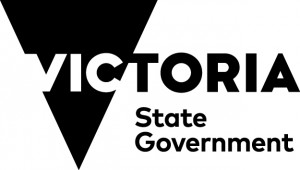Vicsport adapts Governance workshop to assist Melbourne Deaf Cricket Club
Continuing to evolve and adapt our Governance and Leadership workshops, Vicsport has delivered an online session to assist the Melbourne Deaf Cricket Club (MDCC) with their club governance.
Vicsport Sports Consultant Fiona Jones was initially in contact with Cricket Victoria (CV) in late 2019, discussing ways to increase the number of women on cricket committees at all levels of the sport. COVID-19 put a pause on those proceedings but in the meantime, the MDCC were directed to Vicsport by Cricket Victoria to address their own club governance after a new committee had come on board.
“The timing worked well for us to switch our approach to a club and deliver an adapted 101-type governance workshop,” said Jones.
“With a brand new committee, we were able to frame the workshop as an on-boarding exercise and part of the new committees induction process. We wanted to get everyone moving in the same direction as well as making sure they understood their legal and financial obligations as a committee member.”
“It is rare for committees to completely turn over so there was a loss of experience when that happened in July,” said MDCC President, Simon Andersson. “However, it was an opportunity to think about our approach to the MDCC, embrace new ways of thinking and change the tone of the club.”

Conducting the workshop online with deaf participants took a little more planning in the initial stages for Jones but ultimately, it ran the same as any workshop she has conducted.
“It can take time to organise at the start but once the workshop begins, you realise it’s not difficult,” she said.
“Talking to Simon beforehand, I wanted to make sure we got the workshop right so I asked a lot of questions about how it would best work for the participants, whether we needed captioning in addition to interpreters and the right terminology to use to ensure all participants were comfortable that they were getting the same approach as any other club.
“It is a learning experience but you cannot be afraid to ask questions. At the end of the day, it’s about ensuring you deliver a workshop that is appropriate to your audience. The issues we worked through are the same as every other club.
“The main logistical difference was ensuring we had interpreters and due to the length of time, we utilised two. There was a slight delay in communication as things were interpreted but I just had to be careful to allow more time for questions and responses.
“With online workshops I’ve been utilising a range of platforms to deliver activities but I conducted this one by sharing my PowerPoint screen while having participants type their answers into the chat function on Zoom. I then copied those responses into PowerPoint to make sure everyone was looking at the same screen which prevented any extra communication delays and technical issues.
"Working off only one screen meant I didn’t always see participants raising their hands so while I did my best to scroll through the participants and catch any questions, the interpreters did have to interrupt a couple of times and let me know there were queries. These are the things you learn as you go though, I know now for next time to have two screens.”

Prior to the workshop session, Jones sent out some homework for the participants to complete and, pleasingly, found a majority of the responses were the same which showed that while the committee was new, they were coming together with a collective goal.
“It was an unexpected surprise to see a consensus on the five-year vision for the club,” said Andersson. “Knowing we all share a common vision; we can now work together to make it happen. We also received some positive affirmations from the workshop. Being deaf, we are not always able to see what other committees and organisations are doing so it’s important to know what we are doing is right and it helps to motivate us. It’s a bit like batting in cricket - once you have the first 10 or 20 runs, the next runs come easier.”
The workshop also included discussions on expectations and behavior which form the basis of a committee code of conduct, helping all members understand what is expected of them in terms of coming to meetings prepared, asking the right questions, ensuring they are consistently reviewing their work as well as holding each other accountable.
“To make it a practical discussion around governance at a club level, we shared what it meant to them, compared it to the theoretical explanation and what it looks like in terms of their club specifically which helps to marry up whether they are on the right track,” said Jones.
“For example, if a committee member thinks they are there to make sure the club is a high-performance club only, they are missing 98% of why they are actually there. Some of the outcomes from the workshop we discovered was that the MDCC wants to be a hub for deaf participants, a club of choice and grow participation as well as extend to other sports and become inclusive of other community groups. I followed up with Simon afterwards to provide all the responses from the activities as that’s a great resource to have.”
Dedicating time to a committee regularly means meeting outside of regular hours and Jones conducted the workshop on a Saturday night, coinciding with a meeting the MDCC was already holding.
“The MDCC was having a larger workshop of their own from 6pm on Saturday so I jumped online at 7pm and ran the workshop for two hours. Doing it via Zoom means we can deliver anytime, anywhere. We just need enough notice to prepare appropriately and find a date and time that works for everyone; day or night, weekdays or weekends, it’s all possible.”




















